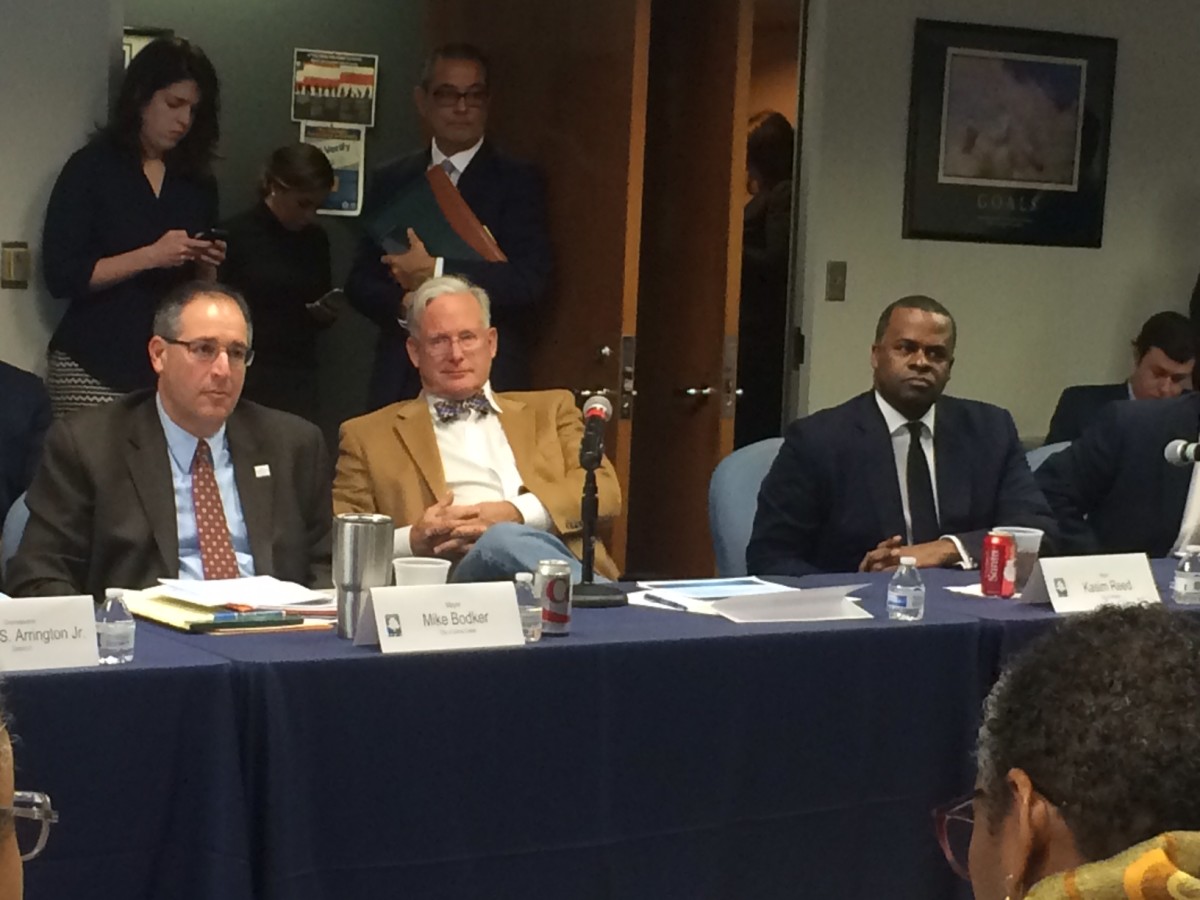Play all audios:
By Maria Saporta Fulton County Commission Chairman John Eaves met with Atlanta Mayor Kasim Reed last week to work on possible “local legislation” compromise for transportation funding that
would address MARTA’s expansion plans. The new compromise follows the reluctance of the Georgia General Assembly to give voters an opportunity to vote on a single MARTA bill to expand its
sales tax by a half penny in the City of Atlanta, and Fulton, DeKalb counties. Eaves said the plan being discussed would give City of Atlanta voters an opportunity during November’s
presidential election to pass the extra half penny for MARTA for 40 years. The people living in Fulton County outside of the City of Atlanta would be given an opportunity to vote on a
five-year T-SPLOST for primarily road transportation for .75 percent of a penny sales tax. Next year (in 2017), those areas of Fulton County would be able to vote on passing .25 of a penny
for MARTA for four years while the T-SPLOST is in effect, and they that would increase to a half penny for the transit agency from year five to year 35. DeKalb County likely would ask voters
to pass another half-penny MARTA tax in 2017. DeKalb is seeking its own sales tax this year. “I support the local legislation,” Reed said about the compromise he had discussed with Eaves.
Eaves described his meeting with the Mayor as “a very good meeting” – showing a closer working relationship between the two leaders of Fulton County and the City of Atlanta than they have
had in the past. Eaves plans to reconvene the mayors of Fulton County at meeting during the week of March 28, which should be after the legislative session has ended. But one issue is when
would a MARTA bill have the best chance to pass. It is generally understood that it would have the greatest likelihood of passing if it were on the ballot during the general election for
president – in November. Confident that timing is on the City of Atlanta’s side, Reed said: “We will have a favorable result.” As to the other jurisdictions, Reed said that all the polling
research done for MARTA has shown that funding for transit is more popular than funding for roads in the City of Atlanta, Fulton and DeKalb. The timing of when the ballot question is
presented to voters also matters. There were many false assumptions about the loss of the T-SPLOST on July 31, 2012. A total of about 675,000 people in the 10-county region voted on that day
with the sales tax losing in a 68 percent to 32 percent vote. Many people interpreted that to mean Atlanta’s did not want a regional transportation plan funded by a penny sales tax. But
less than four months later, during the Nov. 6 general election, a total of 1.69 million people went to polls in the same 10-county metro Atlanta region. Of those, 56.4 percent voted for
President Barack Obama (954,829) and 43.6 percent voted for Mitt Romney, the Republican nominee (737,081). While all Obama voters may not have voted for the transportation sales tax, it’s
obvious that when there’s a robust turnout during a presidential election, there would be a voter base more open to investing in transit than during a Republican-dominated primary. After
2016, the next presidential election will be in November, 2020. _RELATED POSTS_

